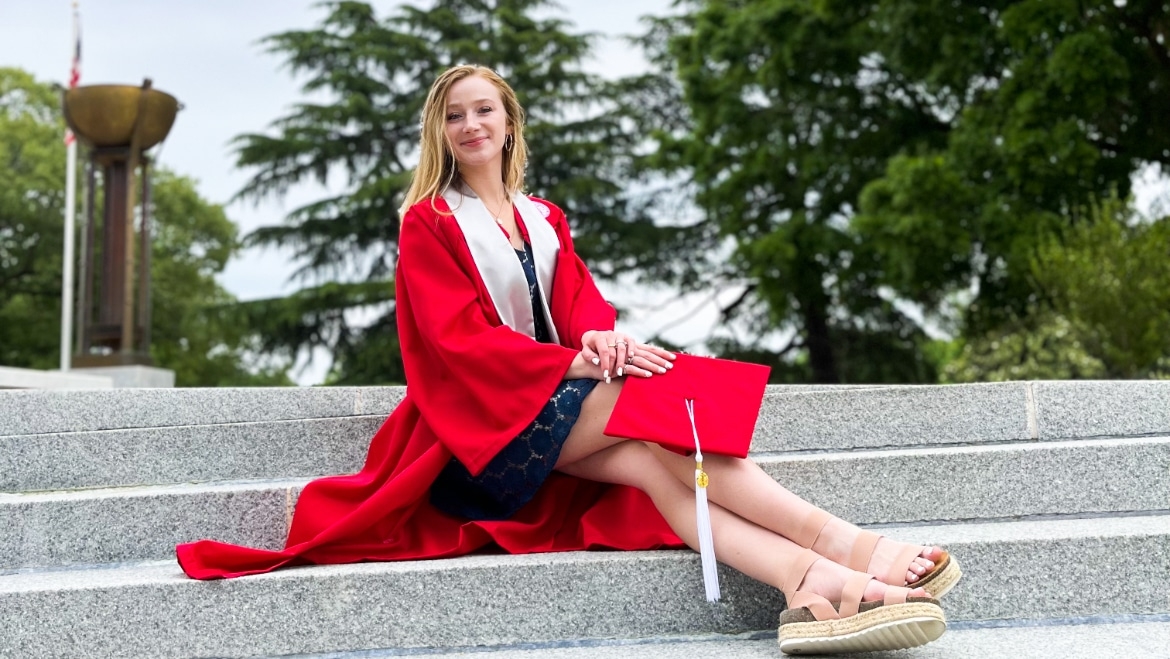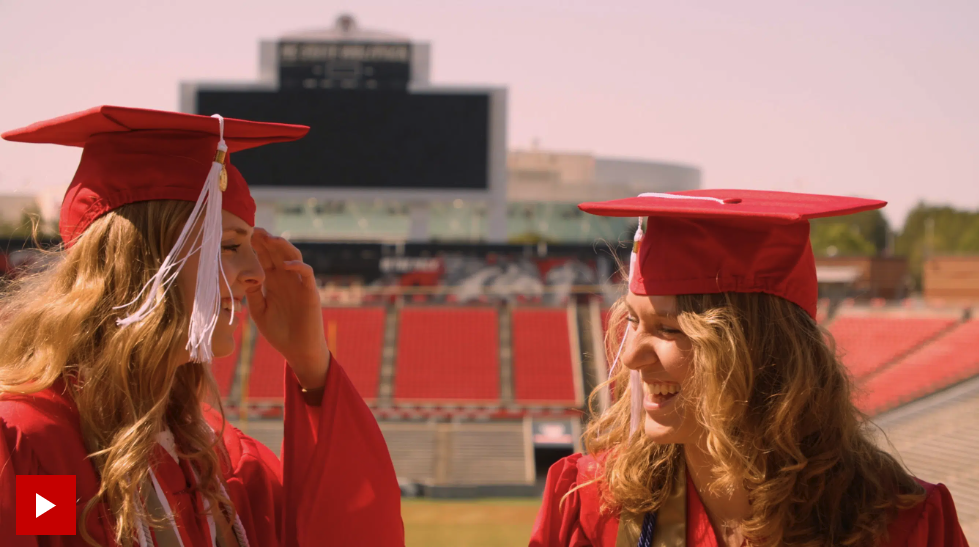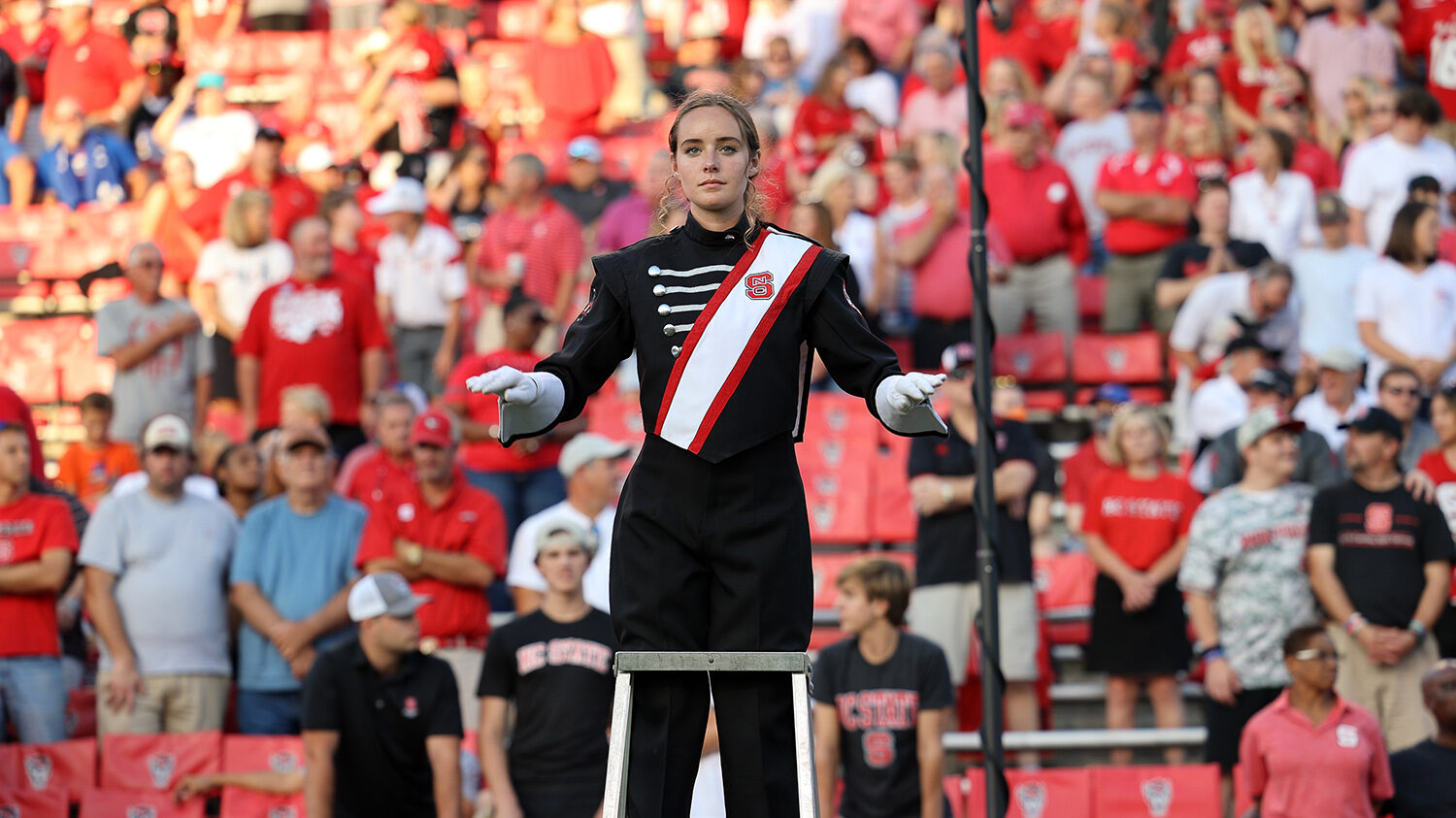Kleiankina prepares celestial-themed recital for ACCelerate Festival in April
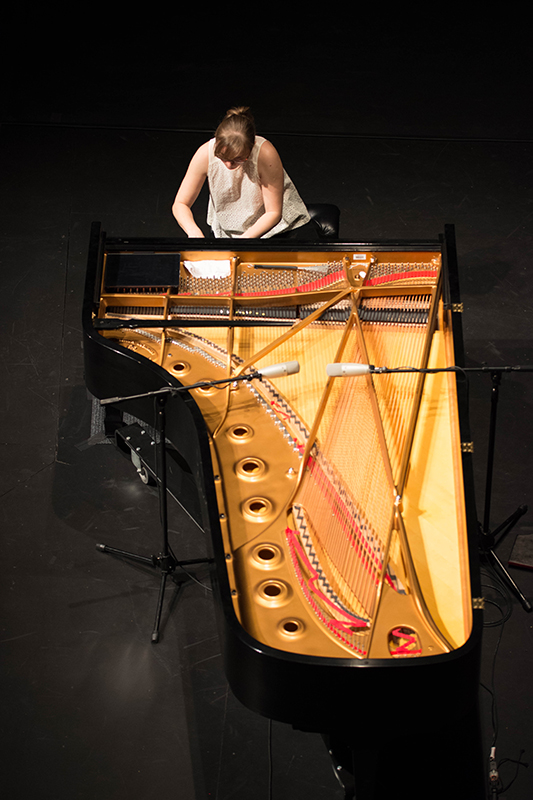
The stars, moon and planets have captivated humanity since our earliest records of civilization. Bone sticks marked to track the phases of the moon were discovered in Africa and Europe and date back possibly as long ago as 35,000 BC. So it’s no wonder that, as we evolved and began to express ourselves through the arts, this preoccupation with exploring and understanding the cosmos would creep into our music, paintings and writings.
Dr. Olga Kleiankina, the director of piano studies for the NC State Department of Music, interpreted this fascination with space exploration through music, visual art and dance in a piano recital originally given in February 2018 titled “…Our Passage to the Stars.”
“I think exploration is one of the inciting forces that makes humanity move forward,” said Kleiankina. “So many things that relate to what is human can also relate to the theme of the recital. It is our emotions, our fears, our bravery, our inventions, our breakthroughs, and simply our dreams when we gaze at the starry sky.”
“…Our Passage to the Stars” incorporated a performance from the NC State Dance Program, and innovative computer-generated visuals by art and design professor Emil Polyak which were created live during the recital in response to the notes played by Kleiankina on the piano. That groundbreaking recital, which Kleiankina describes as “an imaginary human journey to the stars,” was selected in September to be part of ACCelerate in Washington D.C., a creativity and innovation festival which will take place in April 2019.
Finding inspiration on campus
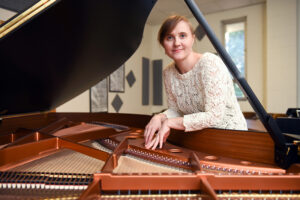
Kleiankina joined the Department of Music in 2009 as a teaching assistant professor of piano and piano pedagogy, after receiving her doctorate of musical arts from the University of Michigan in 2008. Born in Krasnoyarsk, Russia, she began her musical studies at the age of six, winning composition awards by the age of ten. Today, she is an active solo and chamber music performer with an international career, and has performed with orchestras from Moldova, Romania, the United States and Russia.
The environment of science and research at NC State inspired Kleiankina to develop a recital centered around the theme of space and exploration. She wanted to do something interdisciplinary that somehow addressed science, and resulted in more than a single music recital. “I already had the concept in mind and I knew my dream was to be able to visualize the sound as I’m performing, to help people [connect with the music,]” Kleiankina said. “But I thought this would be too complicated.”
When Kleiankina met Polyak by chance at NC State’s 2016 Teaching and Learning Symposium, they started chatting about their work and found that they had shared interests. Polyak, co-director of graduate programs in art and design in the NC State College of Design, was one of the pioneering artists experimenting with 3D computer animation over 20 years ago. Today he works with computational generative art, which involves processing signal inputs of various kinds and translating them into visual art using computer systems. His interest in the intersections of the physical and virtual worlds fit perfectly with Kleiankina’s vision for her recital.
Building an interdisciplinary recital
To create the computer-animated visual narratives which would accompany Kleiankina’s recital, Polyak turned to a process called machine learning, where a computer uses algorithms and mathematical models to progressively improve its performance on a specific task. Essentially, he was training a computer to process the notes Kleiankina was playing and predict what she would play next, and then convert those sounds into visuals in real time. It was complicated by the fact that Kleiankina would be playing an acoustic piano rather than a digital one, so there was no direct input way to get the sound data into the computer. Instead, Polyak had to record her playing each piece and teach the computer to understand the sounds.
“It’s not about the accuracy of converting sound into music and the music into perfect visuals. It’s relying on the current state of machine learning, the current state of what computers can understand from acoustic waves, how they can interpret, how they can understand music, and just see what happens,” said Polyak. “Kind of like how a dancer would not really necessarily understand the musical notes but they would be able to perform based on what they hear and improvise at any point, you make a computer program that improvises based on what is being put into it.”
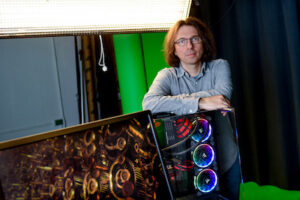 Once Polyak was on board, Kleiankina began researching music to include in her recital. Though trained as an expert in classical and romantic music, she is an enthusiastic performer of new music, and looks for opportunities to commission new works or bring infrequently performed pieces to new audiences. She already knew she wanted to include Jupiter’s Moons by Judith Zaimont, but she wanted to go beyond the obvious planetary themes. “I wanted not only the pieces that are about stars but also pieces that are about people and human emotion and our paths and exploration of the cosmos and space,” Kleiankina said.
Once Polyak was on board, Kleiankina began researching music to include in her recital. Though trained as an expert in classical and romantic music, she is an enthusiastic performer of new music, and looks for opportunities to commission new works or bring infrequently performed pieces to new audiences. She already knew she wanted to include Jupiter’s Moons by Judith Zaimont, but she wanted to go beyond the obvious planetary themes. “I wanted not only the pieces that are about stars but also pieces that are about people and human emotion and our paths and exploration of the cosmos and space,” Kleiankina said.
She discovered a piece by Pierre Jalbert called Relativity Variations that had never been commercially recorded. She intuited that its sparse, spatial feeling would pair well with visualizations of stars. To begin the recital, she selected a piece called Méchanisme by Esa-Pekka Salonen, which introduced the idea of humanity’s striving to explore space.
Some of the pieces Kleiankina described as avant garde, using the piano like a percussion instrument or a harp, or accompanied by electronic music, with sounds and a musical language that were new to Polyak. “I was curious to know what my program was going to do with it. If you create a really good machine learning system for pianos that it recognizes the timbre of the string being hit and the note and everything, and then you go there and pick the string or you put an object in there [to change the way it sounds], it’s not going to understand it but it’s still the same instrument. A glitch is always interesting, whether it’s computer generated or human.”
Kleiankina also commissioned new works from two of her NC State colleagues – Dr. Peter Askim, director of orchestral studies in the Department of Music, and Dr. Rodney Waschka, director and professor of arts studies in the College of Humanities and Social Sciences.
Askim was thrilled to have the opportunity to compose a new work for Kleiankina, and set out to create music that explored not just the theme of the recital, but also her strengths as a musician. “I wanted to create music that explored her enormous emotional range and her ability to express the complexity of human experience, in all its contradictions,” said Askim. “Olga is wonderful as a collaborator – her playing technique is astounding and she can play anything. More than that, though, she is truly determined to enter into the heart of every composer’s sound world and musical language. She went far beyond what normal performers do to understand my music from the inside out. Her commitment is truly inspiring.”
Reaching new audiences
The performance at ACCelerate: ACC Smithsonian Creativity and Innovation Festival will take place April 5-7 at the National Museum of American History in Washington, D.C. The festival is a celebration of creative exploration and research happening at the nexus of science, engineering, arts and design.
Kleiankina is looking forward to sharing the recital with a new audience, and Polyak is glad to have the opportunity to refine his program and artwork. “You don’t want to overpower the pianist with the visual,” Polyak said. “You kind of want them to integrate and become one. It’s almost like stage lighting that you want to emphasize the story with the lighting and the set. Now we have a pretty good recording of the first one, so I can use that as learning data and just feed that in again.” He laughs as he adds, “And then probably she’s going to play it again slightly differently.”
In addition to the ACCelerate Festival in April, Kleiankina will perform the concert at the NC Museum of Art on May 5. The entire concert was recorded in December and will be released as an album in spring 2019 by Blue Griffin Recordings.
- Categories:
